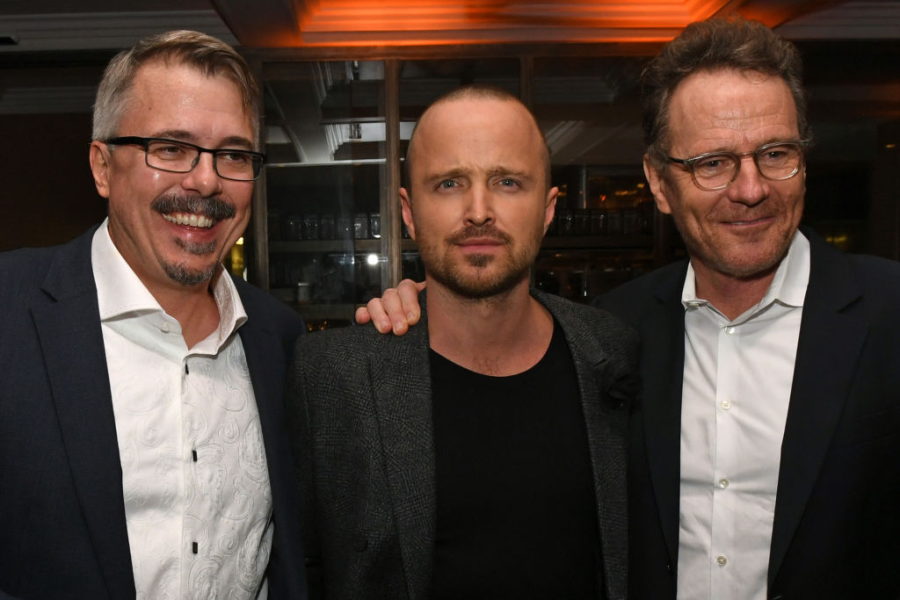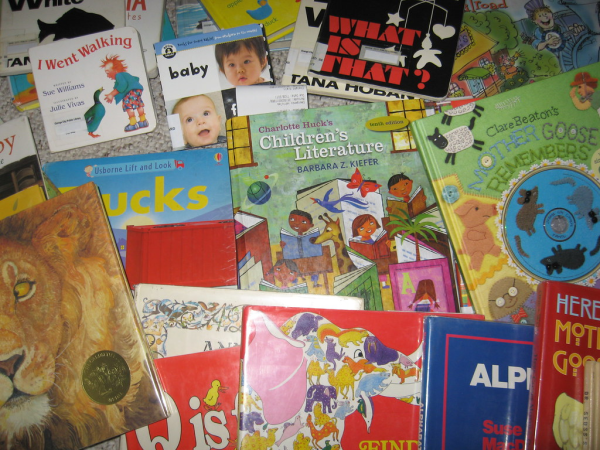The Show of the Century
Venice Gilligan, Aaron Paul, and Bryan Cranston are credited with Breaking Bad’s success over the years.
T.V. shows have come to play a very influential role in mass global culture. Due to social media, people have begun watching the same shows usually around the same time. Similar to other trends, these shows are loved for a brief period of time and simply forgotten afterward. However, some shows are able to live past their five seconds of fame often due to their excellent production, uniqueness (whether in the plot or cast), or their pull on their audience. One of the most noteworthy of these shows would be Breaking Bad.
A very simple, bland, and inaccurate description of Breaking Bad is that it is a show that focuses on a chemistry teacher who begins to cook meth after being diagnosed with cancer. While a quick google search can give you this dry cut-to-the-chase synopsis, what it can’t give you is why this show has the potential to be the show of our century.
The show was originally released in 2008 with a subtle but powerful cast. While the actors were not award-winning or A-list celebrities, their near-perfect acting in the show would later win them multiple awards. Most importantly, Bryan Cranston and Aaron Paul who played Walter White and Jesse Pinkman are often looked to for the definition of perfect casting.
Cranston’s stone-cold face and ability to induce the feeling of fear in viewers with an expressionless face is exactly what Walter White became known for. As for Paul, his character’s internal and external struggles were unavoidably clear with the actors’ ability to display a vast set of emotions through his emotional dialogue and dramatic theatrical actions. While both actors, as agreed by most fans, were cast perfectly in the five-year show, their chemistry together was also what made the castings so great.
The two characters of White and Pinkman changed their relationship status numerous times throughout the show, ranging from a teacher-student dynamic to a father and son one, to later sworn-off enemies (not in this particular order). The two had to express a wide range of not only emotions but also a deeply rooted understanding between the two characters without saying much. The two characters seemed to prefer to leave things unsaid, leaving their actions and carefully selected dialogue to do the talking. While the casting of this show was truly amazing, it is not what makes the show so great. Tackling this topic without mentioning Vince Gilligan (writer, producer, and director) would be disrespectful. The writing of this show is able to take viewers on a complete emotional roller coaster.
While there is much to be said about this wonderful creative genius (he truly is), what is most significant to note is that Gilligan does everything intentionally. The show is filled with color symbolism, carefully dispersed entendre, and a list of complex detailed characters. Gilligan’s strong and certain idea of the show keeps it consistent with the idea of conveying change throughout the show. What Google fails to tell you is that Breaking Bad focuses on the idea of how fast things change: this includes people, life, and health. This makes it so that the show is able to be relatable to a large audience even though viewers have nothing to do with the drug the show is known for.
Gilligan’s ability to make unlovable characters lovable is a very charming aspect of the show. It is certain to say that the show has no perfect characters. None. In the sense that none of the characters make the right decisions, none of the characters have a strong moral compass, and even the “good guys” are not completely good. This is what draws the audience into the show. In real life, there are no absolutes. Good people are bad, people change, and people can make all types of decisions. There is no plot armor to protect people.
In many ways, Walter White was what would be considered a “good” man in the real world. He had a stable job and worked long hours to provide for his family. This goodness in him was what people gravitated towards since they found themselves in similar situations. However, as the show progressed White’s deep dissatisfaction in his life was the driving force behind most of his bad decisions. It was because he was so good for so long that he started breaking bad. While at first Walt was cooking meth as a way to provide for his family, after making a meth empire he no longer had to go to the lengths at which he did. White was estimated to have killed over two hundred people throughout the show. He caused a plane crash, poisoned his friend’s son, and ruined the lives of many around him. However, no matter how many bad things White did, viewers still found themselves rooting for him. That is what makes the show so great. You are rooting for the bad guys even when every logical thought is telling you, you are wrong.
The show’s realistic portrayal of people and change is completed with realistic consequences. Gilligan did not protect his characters from the consequences of their actions. He did not shy away from the consequences that the bad decisions held or even the good decisions. Sometimes doing the good thing led to bad results and Gilligan was able to portray just that. This key difference is what makes this show so different.
The best way to describe Breaking Bad is the domino effect. This show is able to do so many wonderful things. Besides its phenomenal production and organization of the episodes, the show is able to expand the lives of countless beloved and truly evil characters. The realism of this show is something that no other show of this century has yet to recreate or emulate.

Interests/hobbies? Watching movies/shows.
Dream Destination? Everywhere
In 20 years... I'll be 20 years older.
Favorite Fictional Character? Tony...











